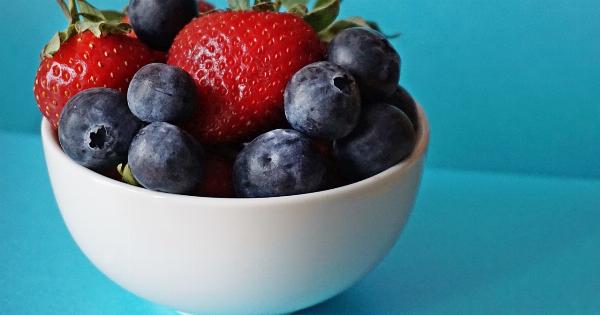Summer is the perfect time to get your fill of delicious, fresh fruits. Not only are they sweet and refreshing, but they also offer a host of health benefits.
Here’s a nutritionist’s guide to the lowdown on some of the most popular summer fruits.
Watermelon
Watermelon is a classic summer fruit and is often a staple at cookouts and picnics. It’s also a great choice for staying hydrated, as it’s mostly made up of water.
In addition, watermelon is rich in vitamins A and C, as well as the antioxidant lycopene. Lycopene has been linked to a lower risk of certain types of cancer, as well as heart disease.
Blueberries
Blueberries are a little powerhouse of nutrition. They’re packed with fiber, vitamin C, and antioxidants. In fact, blueberries contain some of the highest levels of antioxidants of any fruit or vegetable.
Antioxidants help protect your cells from damage and may help reduce inflammation in the body. They’ve also been linked to improved brain function and a reduced risk of heart disease.
Peaches
Peaches are a delicious and juicy summer fruit that are also quite nutritious. They contain vitamin C, potassium, and fiber. Peaches are also a good source of antioxidants, particularly beta-carotene.
Beta-carotene is important for eye health and may also have cancer-fighting properties.
Raspberries
Raspberries are another antioxidant-rich summer fruit. They’re also a good source of fiber and vitamin C. Plus, they contain ellagic acid, which has been shown to have anti-cancer properties.
Raspberries are also low in calories, making them a great choice for anyone watching their weight.
Mango
Mangoes are a tropical fruit that are a good source of vitamin C, vitamin A, and potassium. They’re also high in antioxidants, particularly vitamin C and beta-carotene.
Mangoes may help improve digestive health and may also have anti-inflammatory effects. Just be aware that they’re also relatively high in sugar, so it’s best to enjoy them in moderation.
Cantaloupe
Cantaloupe is a delicious and refreshing summer fruit that’s also quite nutritious. It’s a good source of vitamin C, vitamin A, and potassium. In addition, cantaloupe is high in antioxidants, particularly beta-carotene.
It’s also low in calories, making it a great choice for anyone trying to lose weight.
Strawberries
Strawberries are a favorite summer fruit for many people. They’re a good source of vitamin C and fiber, as well as several antioxidants. They’ve also been shown to have anti-inflammatory properties and may help reduce cholesterol levels.
Like raspberries, they’re also relatively low in calories, making them a great snack for weight management.
Pineapple
Pineapple is another tropical fruit that’s popular in the summer. It’s a good source of vitamin C, as well as the enzyme bromelain. Bromelain has anti-inflammatory properties and may also help improve digestion.
Pineapple is also high in antioxidants, particularly vitamin C and beta-carotene.
Cherries
Cherries are a delicious and nutritious summer fruit that are a good source of fiber, vitamin C, and potassium. They’re also high in antioxidants, particularly anthocyanins.
Anthocyanins may help reduce inflammation in the body and may also improve brain function. Cherries have also been shown to have anti-cancer properties in some studies.
Apricots
Apricots are a sweet and juicy summer fruit that are also quite nutritious. They’re a good source of vitamin A, vitamin C, and fiber. Apricots are also high in antioxidants, particularly beta-carotene.
In addition, they’re low in calories, making them a great choice for weight management.
In Conclusion
Summer fruits offer a delicious and nutritious way to stay healthy during the warmer months. By incorporating a variety of different fruits into your diet, you can get a wide range of vitamins, minerals, and antioxidants.
So next time you’re at the farmer’s market or grocery store, make sure to stock up on some of these tasty and nutritious summer fruits.






























